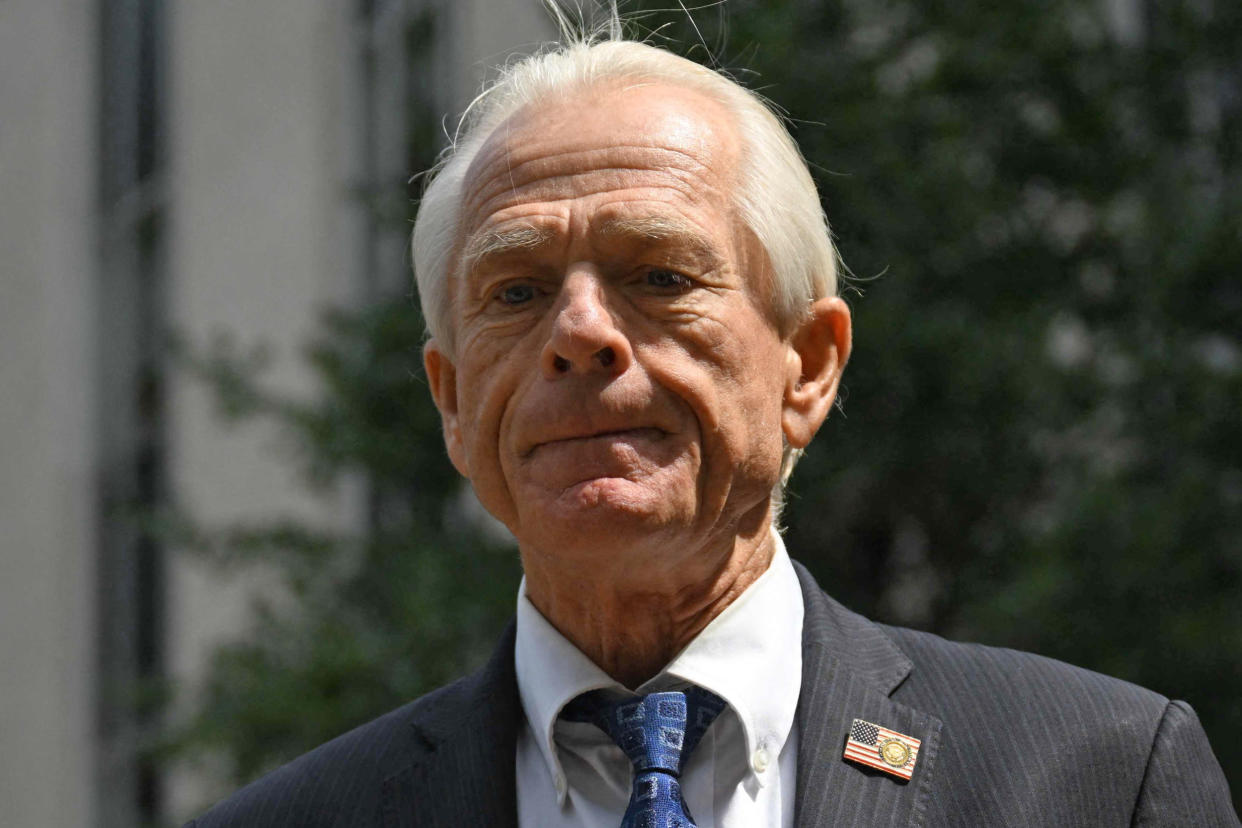Judge rejects former Trump aide Peter Navarro's executive privilege claim, paving the way for a trial in contempt case

- Oops!Something went wrong.Please try again later.
A federal judge on Wednesday denied ex-White House adviser Peter Navarro's bid to escape contempt charges by claiming former President Donald Trump had invoked executive privilege over his potential testimony to a congressional panel investigating the events leading up to and including the Jan. 6 riot at the U.S. Capitol.
The ruling paves the way for Navarro to stand trial next week in Washington on charges of criminal contempt of Congress for ignoring subpoenas from the House Jan. 6 committee.
Navarro has claimed that Trump directed him to invoke executive privilege — a privilege the protects presidential deliberation — but there was no evidence Trump had actually done so, U.S. District Judge Amit Mehta found at a pretrial hearing Wednesday.
Mehta cited three pillars of invoking executive privilege: that it must be invoked by the president or an authorized representative of his or hers, that it must be made after personal consideration by the president or an authorized representative and that it cannot be validly asserted by what Mehta called “mere acquiescence” or a “blanket assertion of privilege.”
“Executive privilege is an extraordinary assertion of power, not to be lightly invoked,” he said.
Navarro had cited Trump’s alleged invocation of privilege as the reason he refused to answer any questions or turn over any documents to the Jan. 6 committee. But Trump has submitted no evidence asserting he'd claimed executive privilege in Navarro's case before the court.
One of Trump's attorneys, Evan Corcoran, submitted a letter in the case on the former president's behalf this year extolling the importance of executive privilege. The letter to Navarro said it "confirms President Trump’s position that, as one of his senior advisors, you had an obligation to assert executive privilege on his behalf and fully comply with the principles of confidentiality stated above when you responded to the Committee’s subpoena." The letter does not say Trump invoked privilege himself or directed Navarro not to cooperate with the Jan. 6 committee.
At a hearing Monday, Mehta noted that Navarro didn't cite any of the language Trump allegedly used in what Navarro said was their discussion about the matter. “Even if there aren’t magic words,” Mehta said, there should be “some words” or a “smoke signal” about what Trump said.
The Jan. 6 committee contended it needed information from Navarro, who was Trump’s White House trade adviser, because he played a key role “in the ex-president’s effort to overturn the 2020 election” and publicly boasted about his plans to upend the election results. He called the plan the “Green Bay Sweep” in a book he published in 2021 and has said publicly that Trump was “on board with the strategy.”
Navarro has pleaded not guilty to both charges — one alleging he refused to provide testimony and the other alleging he refused to provide documents.
Jury selection is set to begin Tuesday.
This article was originally published on NBCNews.com

